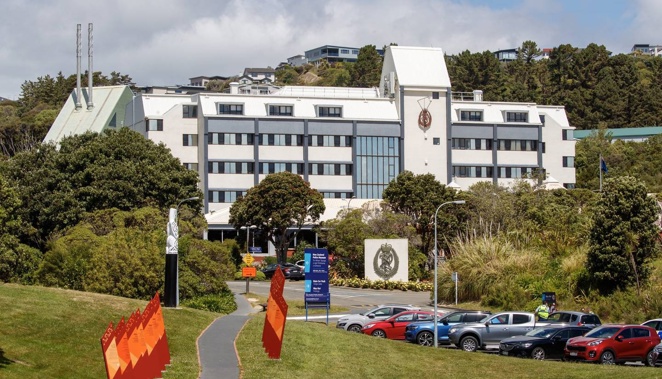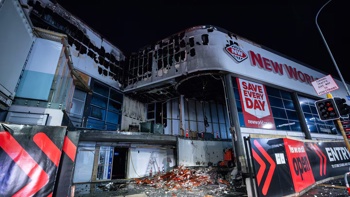
Police stations throughout New Zealand may have to close due to health and safety requirements, with black mould and leaky walls causing “significant health hazards”, the Police Association says.
An article in the latest Police News magazine says association members are “struggling with major issues” at dozens of stations.
“Water seeps through wall sockets, down walls or over the floor; black mould that adorns the ceilings like inkblot tests; areas cordoned off or only able to be entered if you are wearing a mask; and cell blocks that are out of action or deemed so high risk that prisoners have to be constantly monitored,” Police News reported.
Police Association president Chris Cahill told the Herald there would not be many stations across the country that didn’t have “significant issues”.
“The most concerning is when staff are confronted with things like black mould because that’s a significant health hazard,”
“When you literally know it’s raining because there’s water coming out of the sockets in the walls — hardly feel safe in your building do you.”
He confirmed there had also been reported concerns about cockroaches and mould at the Royal New Zealand Police College in Wellington that had “significant maintenance issues”.
“It’s not a great introduction to policing,” he said.
Cahill said the issue had to do with a “woeful lack of strategy” around infrastructure spending across all government departments.
“With no strategy, you’ve got deferred maintenance that hasn’t been happening … now it’s all catching up,” he said.
“The real concern is that once you start deciding that you need to replace the walls in this building and realise that these walls aren’t replaceable, the whole building needs replaced. That’s the real concern, that we’re only seeing the tip of the iceberg.”
Unless a plan is introduced in the “short-to-medium term”, there was a “real risk” that some police stations would not meet health and safety standards, Cahill said.
“If you don’t do something, what are you going to do? It’s not like you can just find another building and that’s the real challenge, trying to find suitable buildings.”
The more immediate risk was cell blocks that would not be up to standard. The Independent Police Conduct Authority regularly audited them and found many were “very marginal”, Cahill said.
‘50-year plan’ needed
He believed police were “fully aware of the seriousness” of the issue, but did not think they had any confidence they would get the money they needed from the Government.
“There needs to be a whole-of-government approach to infrastructure across New Zealand that allows a 50-year plan, not a three-year plan,” he said.
Cahill said the public wanted more visibility from police, and to have more contact with them.
“But if you’re having to base officers further away because there’s simply no station available to them or officers have to travel long distances to transport prisoners, they’re not going to be in your community.”
Assistant Commissioner Mike Johnson told the Herald police acknowledged many of its buildings, houses and associated infrastructure were “in need of refurbishment or replacement”.
“We have a priority work plan and are looking to advance that within the funding we have to ensure buildings essential to service delivery are prioritised,” he said.
“The challenge is that increasing prices, inflation and associated impacts on our budget, have created a perfect storm of demands in this area. We know that this has meant an even greater challenge for our staff who are living or working in them every day.”
Johnson was “grateful and impressed” with the way staff were “pitching in to make the best of it”, and working through the challenges.
Police had briefed new Police Minister Mark Mitchell on the issues. A budget investment strategy has been proposed.
Police have 248 residential houses, 324 stations plus 77 specialist sites, which range from metros to community policing centres, dog bases, training centres and multi-agency centres.
The non-residential portfolio was a mixture of owned buildings and includes 116 leased premises/carparks etc.
“The property team is applying a priority lens over issues on a daily basis and the whole property portfolio to balance the need as much as possible.”
Johnson said police would continue to make improvements across the whole range of buildings “in a prioritised fashion”.
“That said, these are aged buildings in a number of cases and need to be prioritised for work or improvements using the criteria above.
“I say to our staff members who are working incredibly hard, every day, some in less-than-ideal conditions — thank you. The process is a complex one, but we are working as best we can to ensure our staff are living and working in fit-for-purpose locations.”
Sam Sherwood is a Christchurch-based reporter who covers crime. He is a senior journalist who joined the Herald in 2022, and has worked as a journalist for 10 years.
Take your Radio, Podcasts and Music with you









